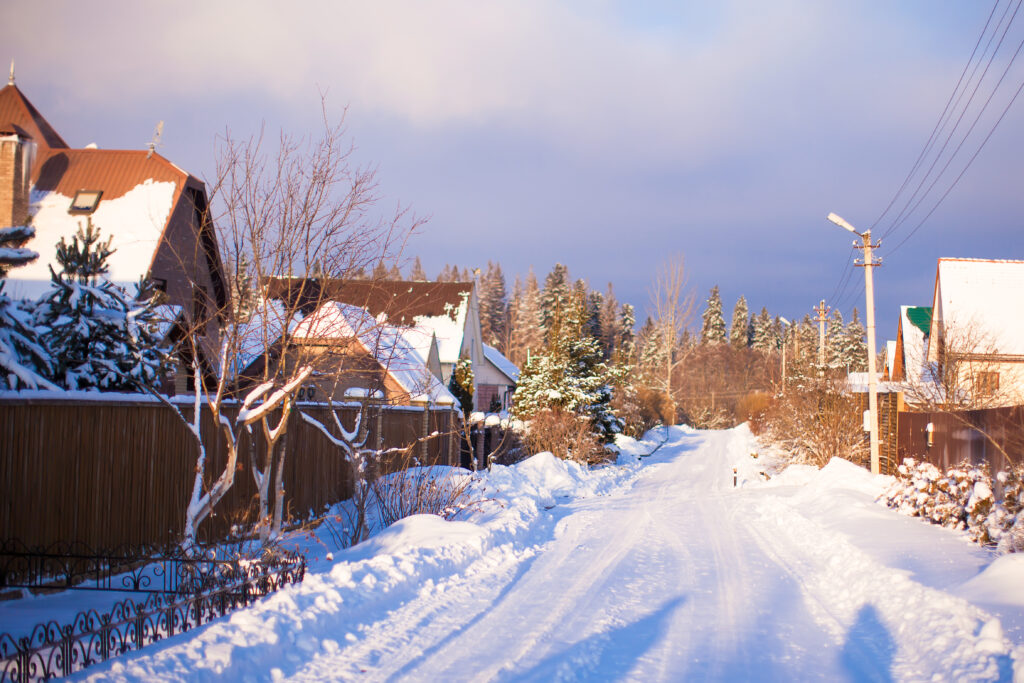
If you’re a New Jersey homeowner considering solar panels, you’ve probably wondered whether those gray, snowy winters will turn your investment into an expensive roof decoration. It’s a fair question. After all, we’re not exactly known for our year-round sunshine here in the Garden State.
The good news? Solar panels absolutely work during New Jersey winters, and they might perform better than you think.
The Cold Hard Truth About Solar Panels and Winter
Here’s something that surprises most people: solar panels actually love cold weather. While it seems counterintuitive, solar technology operates more efficiently in cooler temperatures than in scorching summer heat.
Think of it like your smartphone. Ever notice how your phone gets sluggish on a hot summer day? Solar panels experience something similar. When temperatures soar above 77°F, solar panel efficiency starts to drop. But in the crisp winter air, those panels are working at peak performance.
The real factor isn’t temperature at all—it’s sunlight. And yes, New Jersey gets plenty of winter sun.
Snow on Solar Panels: Problem or Non-Issue?
Let’s address the elephant in the room: snow. When those nor’easters roll through and dump a foot of snow on your roof, won’t that completely shut down your solar system?
The answer is more nuanced than you might expect.
Yes, snow covering your panels will temporarily stop energy production. But here’s why it’s rarely a significant problem:
Snow doesn’t stick around long. Solar panels are typically installed at an angle, and their dark, smooth surface heats up quickly once any sunlight hits them. This means snow slides off much faster than it does from the rest of your roof. Many homeowners report their panels clear themselves within a day or two, even when surrounding areas remain snow-covered.
Light snow isn’t a complete blocker. A light dusting of snow allows sunlight to penetrate through, meaning your panels continue generating at least some electricity even when they’re not completely clear.
Winter only represents a fraction of the year. New Jersey typically experiences significant snow cover for only a few weeks annually. The rest of winter? Your panels are soaking up that beautiful, efficiency-boosting cold sunshine.
New Jersey’s Solar Advantage
New Jersey might not be Arizona, but we’re actually in a pretty sweet spot for solar energy. The state receives approximately 200 sunny days per year, and our winters include plenty of bright, clear days between storm systems.
Even during December and January—our cloudiest months—solar panels in New Jersey continue producing substantial energy. Modern solar technology has become incredibly efficient at capturing both direct and diffuse sunlight, meaning even overcast days contribute to your energy production.
Consider this: Germany leads Europe in solar adoption, and they receive significantly less annual sunshine than New Jersey. If solar works economically there, it absolutely works here.
How Much Energy Can You Expect in Winter?
While your solar panels will produce less energy in winter compared to those long summer days, the reduction isn’t as dramatic as you might fear. Most New Jersey solar systems produce about 40-60% of their summer output during winter months.
That might sound disappointing at first, but remember—you’re also using less energy during winter in many categories. No air conditioning, shorter evening hours, and cooler ambient temperatures mean your refrigerator and freezers don’t work as hard.
When you look at the annual picture, seasonal variations balance out. Your summer overproduction often compensates for winter underproduction, especially if you’re connected to net metering programs that credit your account for excess generation.
The Net Metering Advantage in New Jersey
Speaking of net metering, this is where New Jersey homeowners really win. When your panels produce more electricity than you use (which happens frequently during those long summer days), that excess energy flows back to the grid, and you receive credits on your utility bill.
Those credits carry forward, helping offset your costs during winter months when production naturally dips. It’s like having a solar savings account that automatically balances your energy costs throughout the year.
New Jersey’s net metering policies are among the most favorable in the nation, making solar an even smarter investment regardless of seasonal variations.
Real-World Performance Data
Talk to actual New Jersey solar owners, and you’ll hear consistent stories: their systems perform remarkably well year-round. Many report barely noticing a difference in their electricity bills between summer and winter because their annual production still covers most or all of their consumption.
Solar monitoring apps let homeowners track daily production, and while they’ll see lower numbers on short, cloudy December days, they’ll also see impressive generation on those clear, cold January mornings when the sun reflects off snow-covered ground—a phenomenon called the “albedo effect” that actually boosts solar production.
What About Shorter Days?
Yes, winter days are shorter. There’s no getting around the fact that fewer daylight hours mean less time for energy production. But modern solar panels are so efficient that they maximize every available hour of sunlight.
Plus, the angle of winter sun isn’t necessarily a disadvantage. When panels are installed at the optimal tilt (usually around 30-40 degrees in New Jersey), they’re positioned to capture low-angle winter sunlight effectively.
Making Solar Work Even Better in Winter
While solar panels require virtually zero maintenance, there are a few things New Jersey homeowners can do to optimize winter performance:
Keep an eye on heavy snow accumulation. While most snow will slide off naturally, extremely heavy accumulation after a major storm might warrant gentle removal with a roof rake designed for solar panels. Never use sharp tools or climb on your roof—safety first.
Trim nearby trees if they cast shadows on your panels during low-angle winter sun. Even partial shading can significantly reduce output, and winter reveals which branches might be problematic.
Monitor your system regularly. Most solar installations include monitoring apps that let you track production. If you notice unusual drops that aren’t weather-related, you can quickly identify and address any issues.
The Bottom Line for NJ Homeowners
Do solar panels work in New Jersey winters? Absolutely. Will they produce as much as summer? No, but that’s already factored into system design and financial projections.
When solar companies evaluate your home and provide production estimates, they’re calculating annual performance that includes our snowy, cloudy winter months. Those estimates already account for seasonal variation, meaning the financial benefits you’re promised factor in our very real Garden State winters.
The combination of efficient cold-weather performance, favorable net metering policies, strong solar incentives, and enough winter sunshine makes New Jersey an excellent state for solar adoption—snow and all.
If you’ve been holding back on solar because of winter concerns, it’s time to reconsider. Those panels will be working hard for you every month of the year, including when there’s snow on the ground and a chill in the air.
Ready to see how much you could save with solar, even during New Jersey winters? The federal tax credit of 30% is available through December 31, 2025, making now the perfect time to explore your options.
Want to learn more about how solar can work for your New Jersey home? Contact us today for a free consultation and find out how much you could save year-round with solar energy.
Contact Advisor Solar Today!
Switch to clean energy today with expert solar consultations, designed to save you money and reduce your carbon footprint. Let our experienced team guide you through the process, from planning to installation.

